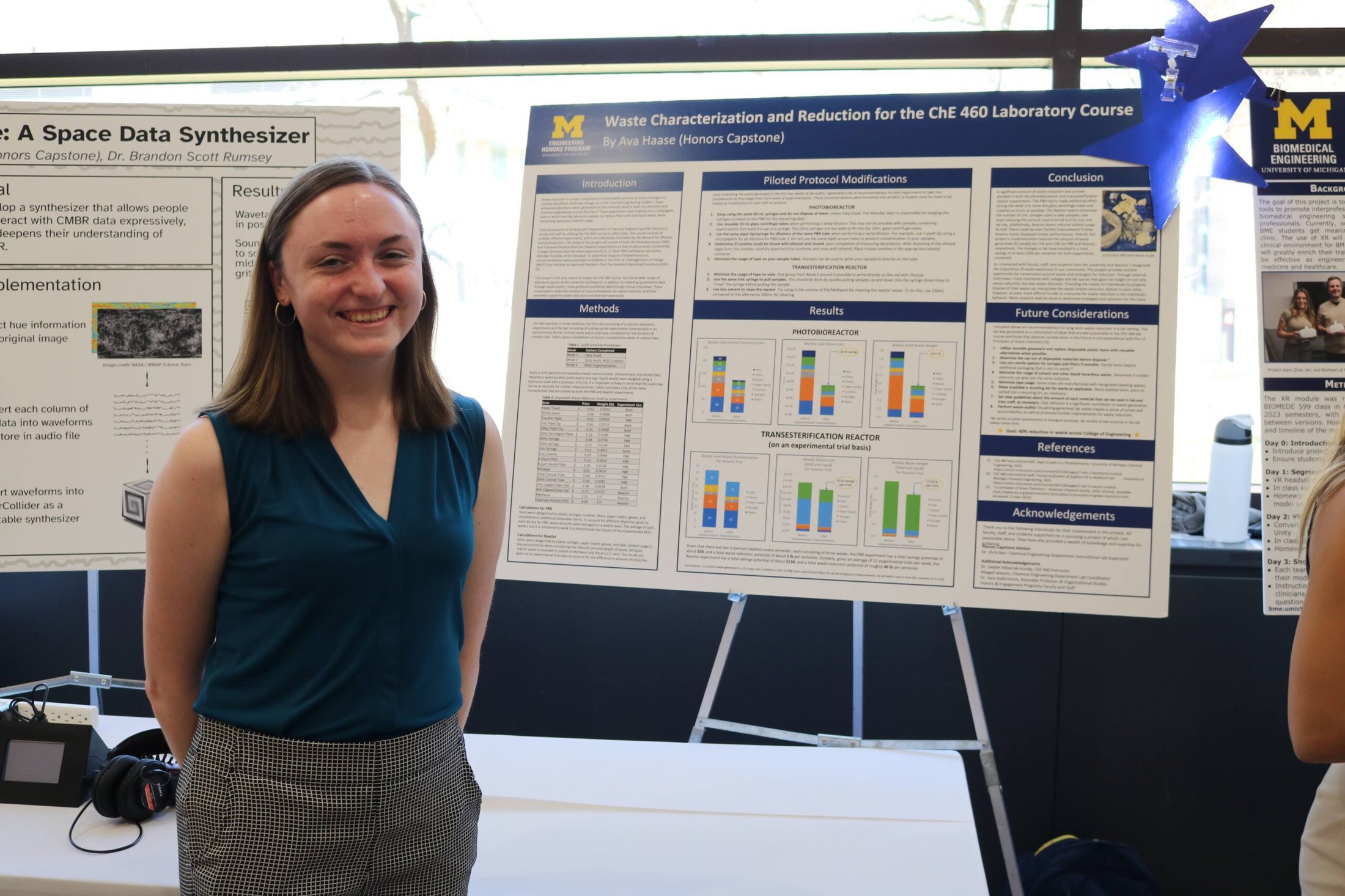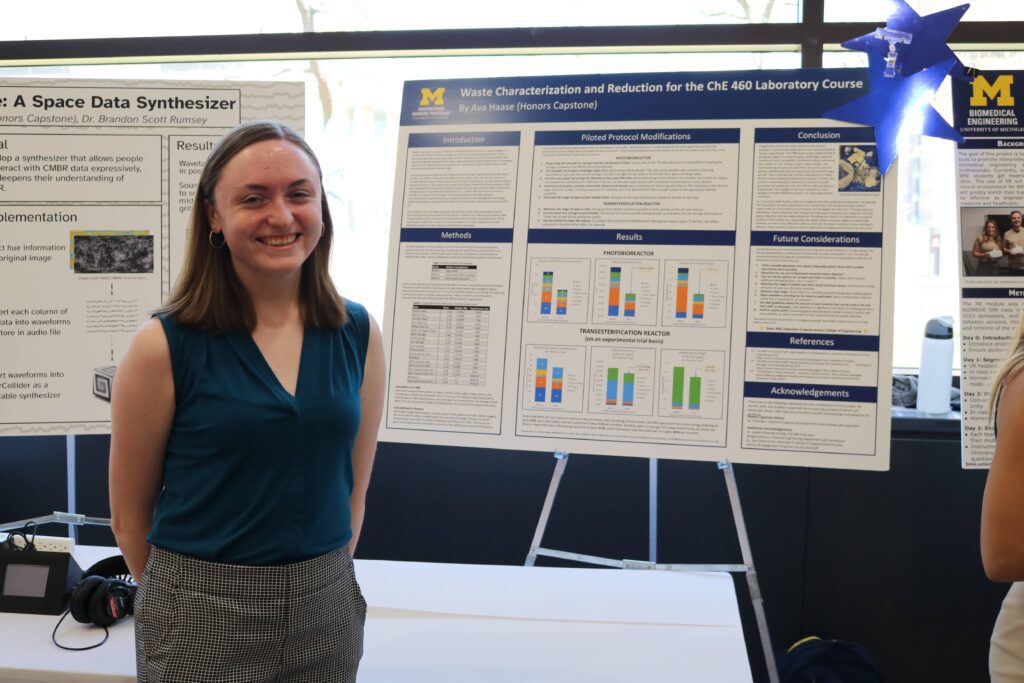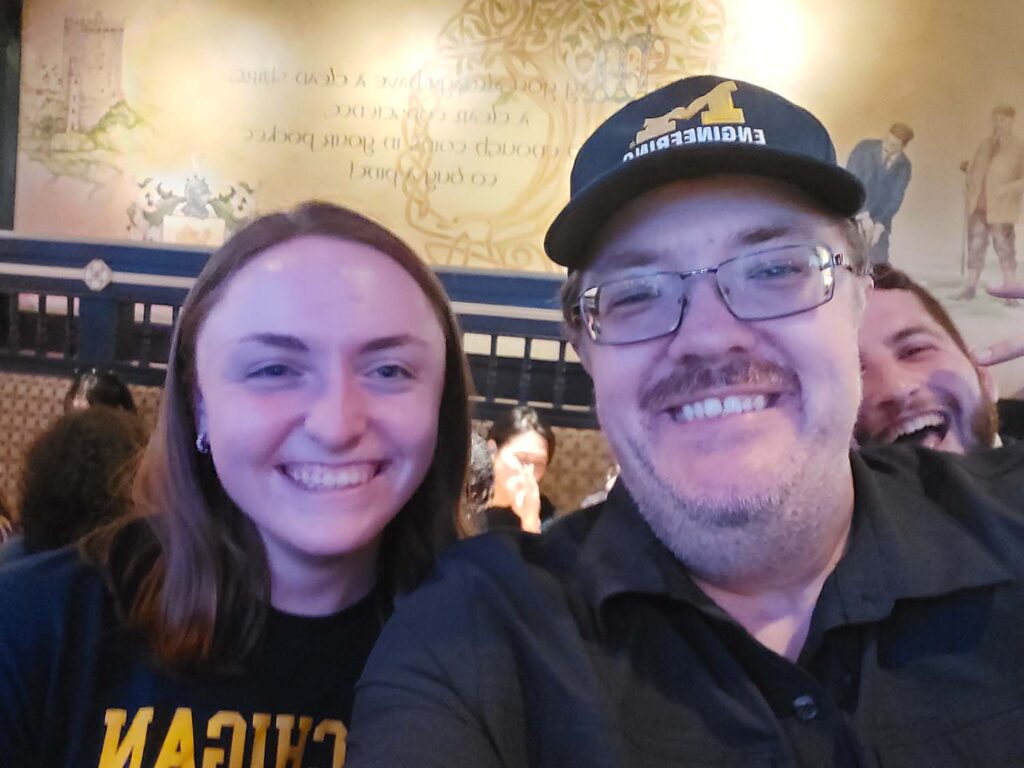
Undergraduate senior aims to reduce laboratory waste as part of honors capstone project
The project provides a renewed opportunity for conversation around the importance of waste awareness and strategies for reduction in the community.

The project provides a renewed opportunity for conversation around the importance of waste awareness and strategies for reduction in the community.
Chemical Engineering undergraduate senior, Ava Haase has always had a passion for making the world more sustainable. Inspired by the idea of reducing waste in laboratory spaces, Haase began to investigate reducing solid and liquid waste, while minimizing hazardous material usage.
“Recently, I found myself changing personal habits and lifestyle to reduce the amount of trash I generate,” Haase said. “After taking organic chemistry courses at the university, I quickly became aware of how much waste labs generate and decided that my Honors capstone project would be focused on waste reduction in lab spaces.”
“After taking organic chemistry courses at the university, I quickly became aware of how much waste labs generate and decided that my Honors capstone project would be focused on waste reduction in lab spaces.”
Ava haase
Undergraduate student in chemical engineering
For the project, Haase worked alongside Department of Chemical Engineering laboratory faculty and staff to collect waste data from two different experiments that take place in the Chemical Engineering Laboratory II (ChE 460) course. The photobioreactor and transesterification reaction experiments both consistently produce waste in larger amounts than other experiments in the same lab.
Through waste audits and virtual interviews, Haase gathered quantitative and qualitative data to create recommendations for waste reduction and diversion awareness.

“I performed a daily waste audit over the course of three weeks,” Haase said. “The first two weeks were spent counting and sorting waste, evaluating the data and ideating ways to reduce waste, and in week three I implemented changes to the protocol and evaluated student performance via the waste audit.”
On a weekly basis, Haase found the lab could save approximately $58 of chemicals and lab consumables and generate approximately ten pounds less in waste by utilizing a few changes.
Recommendations implemented included purchasing non-disposable syringes that can be reused during sampling in both experiments and reduction in volume of solvents used during the reactor washing step that students complete between trials.
Reuse of glass centrifuge tubes and beakers for multiple steps in the photobioreactor experiments also contributed to overall waste reduction.
As a result of implementing these recommendations, Haase’s project was able to reduce the amount of waste generated in the lab weekly by 51% for the photobioreactor experiment and 23% for the transesterification reaction experiment, resulting in a total savings of at least $700 per semester for both experiments combined, generating over 114 pounds less in waste. This cost savings doesn’t include the cost to dispose of the hazardous waste from the university so the actual impact is even higher.

“Ava was able to survey students who had actually implemented these changes to assess whether the changes were burdensome or affected their data,” Instructional Lab Supervisor and project mentor, Dr. Chris Barr said. “The general consensus was that there was a small increase in work due to washing the equipment but that the changes didn’t affect their data.”
Though examining sustainability is not new within undergraduate chemical engineering labs, Haase’s project has reinvigorated the sustainability discussion among the lab faculty and staff to explore additional changes to experiments that were not included in her audit.
Prior efforts to improve sustainability in the ChE 460 course have included laboratories becoming certified through Michigan’s Office of Campus Sustainability.
“We’ve also made a few changes in the past such as swapping out for less-hazardous chemicals and examining our purchasing to ensure we perform that sustainably. Ava’s additional work resulted in savings that can be better utilized in improving the lab,” Barr said.

Haase’s project provides a renewed opportunity for conversation around the importance of waste awareness and strategies for reduction in the community.
“I hope that this project raises awareness around waste and the feasibility of reducing the use of disposable, single-use products and hazardous chemicals,” Haase said. “I think there is great potential to reduce additional waste and costs by implementing similar changes for the other experiments across the College of Engineering.”